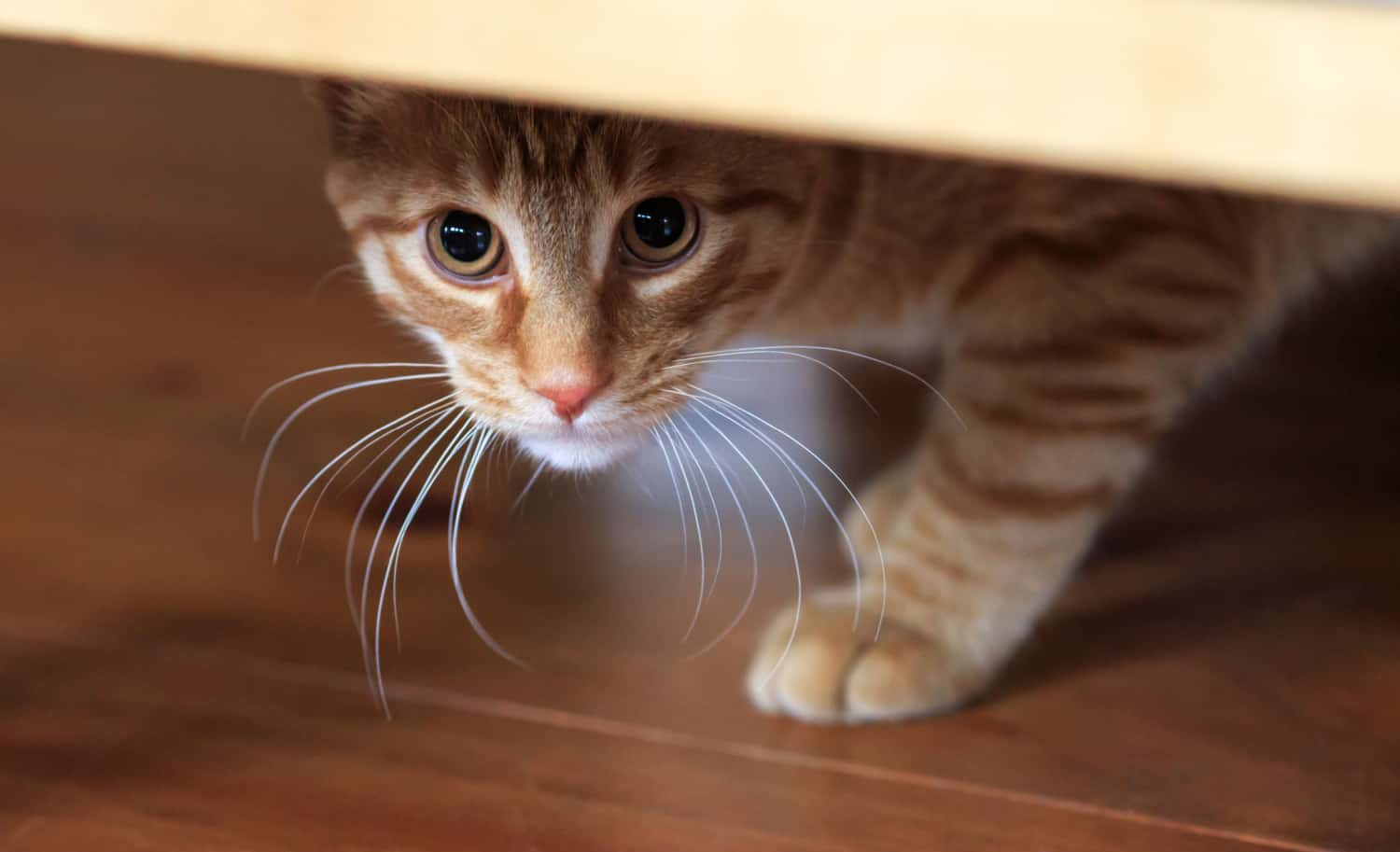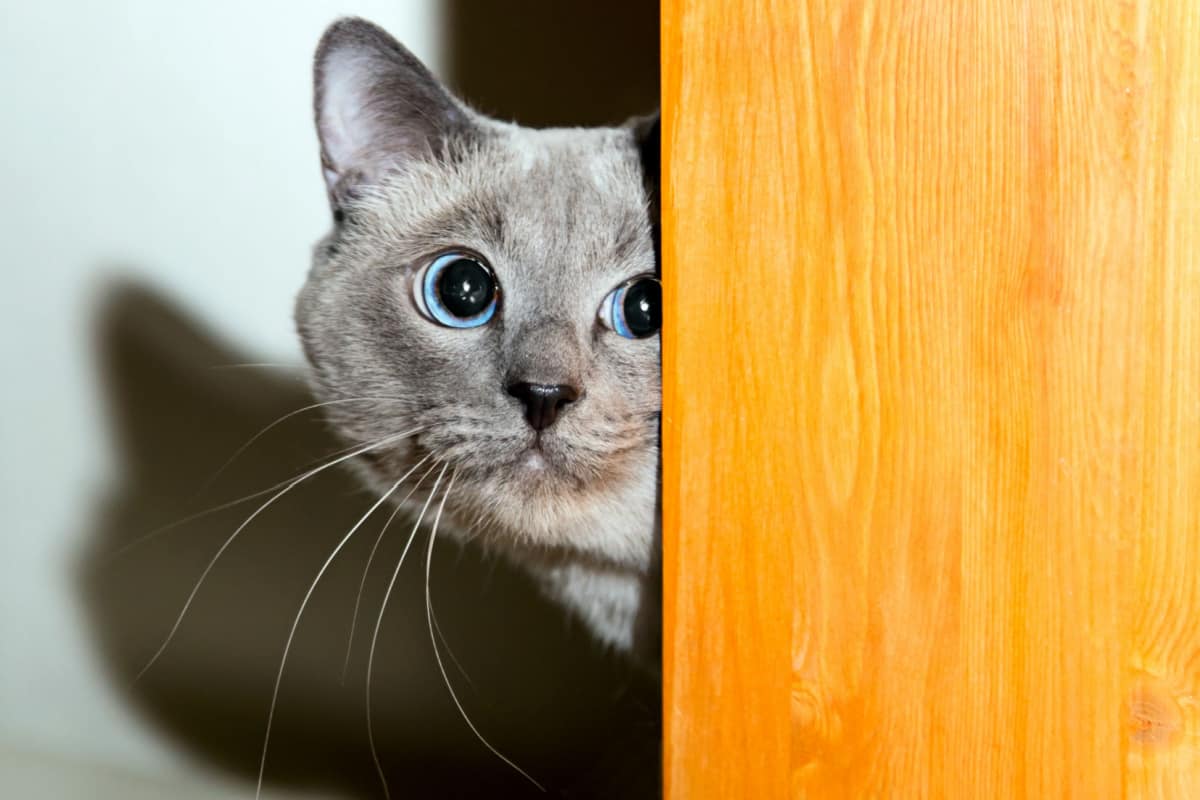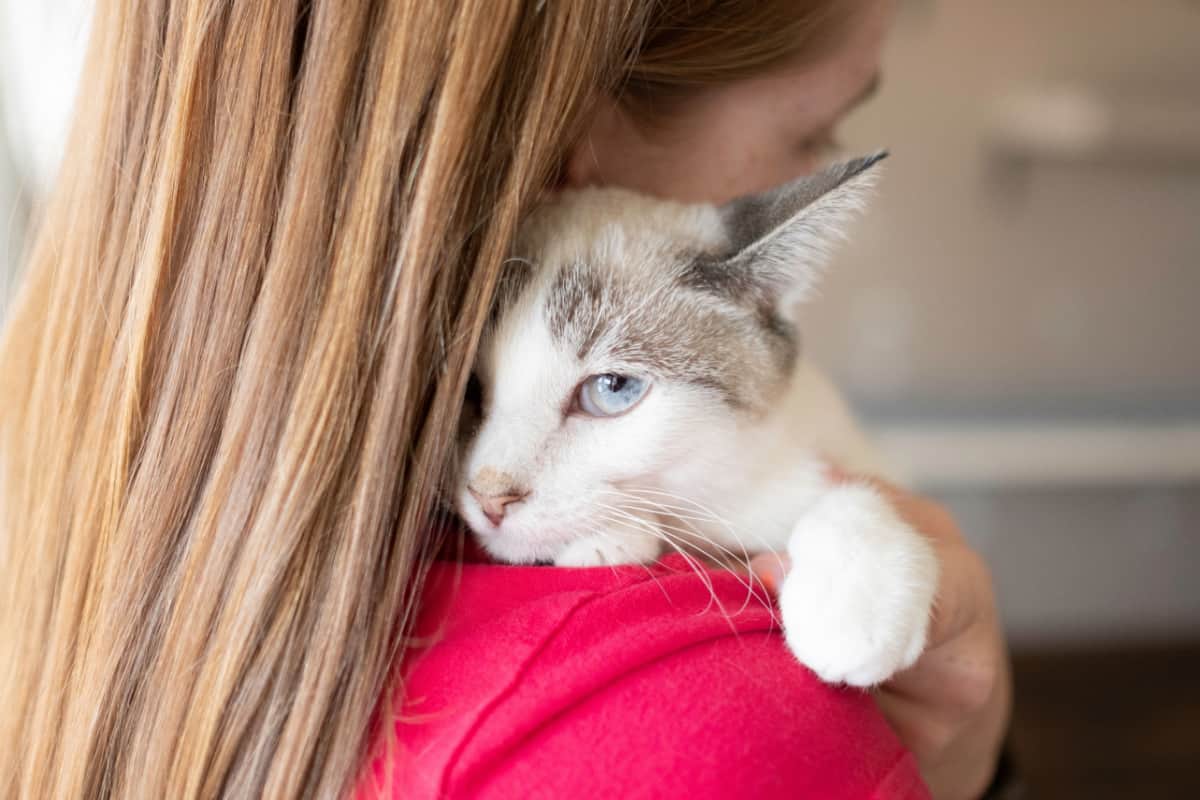Ever wondered why your favorite feline friend suddenly decides to forgo the litterbox?
It turns out that it has less to do with the litterbox and more to do with the cat's own emotions and social tendencies.

Researchers at the University of Helsinki have shed some light on this enigmatic behavior.
Does Your Cat Avoid The Litter Box?
Did you know that the most common challenges cat owners face are related to litterbox issues?
Imagine finding a surprise at an unexpected spot in your house - not the most pleasant sight, right?
Litterbox issues can be so frustrating that they even lead to owners giving up their pets.
But what if we told you that these issues could be prevented or reduced by understanding the underlying causes?
What if you found out that your cat's own fearfulness and sociability played a significant role in these issues?
Scaredy cats, as they're endearingly called, might be adorable, but they're more likely to skip the litterbox.
And those who aren't so keen on mingling with other cats might also be more prone to these issues.
In fact, even the presence of other pets in the household can influence your cat's behavior.
Fearfulness In Cats Lead To Litter Box Issues
The research team at the University of Helsinki delved deep into the world of cats and their litterbox use.

Their study included over 4,000 cats, providing a comprehensive dataset to draw their conclusions.
The team identified two significant behavioral traits related to litterbox use:
- soiling outside the litterbox (house soiling), and,
- avoiding the litterbox due to uncleanliness or quality issues (litterbox fussiness)
Their findings? Fearfulness in cats is associated with both these undesirable traits.
So, if you have a nervous kitty, you might have already noticed these behaviors.
Other Factors: Sociability, Breed, and Health Issues
The study also found that the cleanest cats - the ones fussiest about their litterbox cleanliness - were older cats and those living in families with children.
Interesting, isn't it?
But it's not just fearfulness that can cause litterbox issues.

Other factors identified included a cat's sociability, breed, and health issues such as urinary tract problems.
For example, Bengal cats had the most problems on average, while Siberian and Neva Masquerade cats had the least.
In the realm of social dynamics, cats that were more sociable with other cats had fewer problems than less social cats.
This could be due to the fact that sociable cats are better able to coexist with other cats in the household, reducing stress and, as a result, reducing litterbox issues.
Moreover, non-sterilized cats were found to have more litterbox issues, particularly due to urine marking.
This behavior, though undesirable for us humans, is an inherent part of feline behavior, especially for those who are not sterilized.
So, it's not all about disobedience or rebellion; it's simply how our furry friends communicate with each other.
What You Can Do If Your Cats Avoid The Litter Box
So, what does all of this mean for you, a cat owner or lover?

The findings suggest that by understanding the personality and social tendencies of a cat, as well as maintaining the cleanliness and quality of the litterbox, one can significantly reduce the chance of litterbox issues.
Moreover, it's recommended that each cat in the household should have their own litterbox, further reducing the chances of issues arising.
While the study doesn't establish direct causality, it certainly gives us intriguing insights into our feline companions and their bathroom behaviors.
By favoring non-fearful and sociable individuals when adopting or purchasing a cat, you can already reduce the likelihood of litterbox issues.
And remember, a clean litterbox is a happy litterbox for our feline friends!
For more helpful cat care tips, check out these articles:
Bathing An Adopted Cat: Necessary Or Optional?
Your Guide to Homegrown Catnip: A Feline Delight in Your Backyard
Some elements on this page may have been created by our team using advanced AI to provide you with top-notch cat inspired ideas. Read more about our AI Content Policy.
